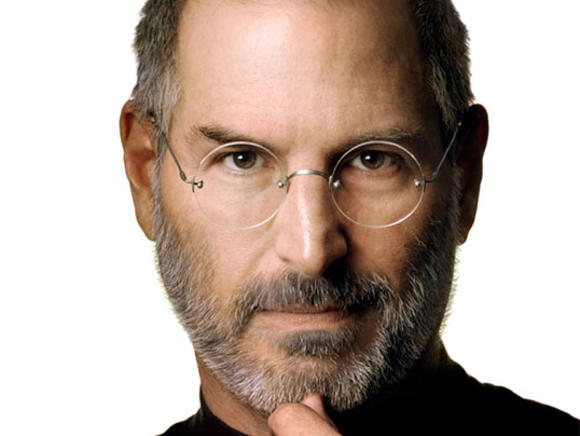Lessons from Steve Jobs
Steve Jobs resigned as the CEO of Apple and became Chairman – a move that was perhaps in the offing due to his illness. In his characteristic simple manner, he said “I have always said if there ever came a day when I could no longer meet my duties and expectations as Apple’s CEO, I would be the first to let you know. Unfortunately, that day has come.”

Steve gave the world amazing products – the Mac, iPod, iPhone, and iPad. All of them were blockbusters. Yet, he will be remembered for the way he shaped the future of industries like music, computing, movies, and the cell phone to name a few. Currently, Apple is neck to neck with Exxon Mobil for the title of the world’s most valuable company. This has to be seen against the fact that about 10 years ago, Apple faced the risk of going under.
Much has been written about Steve’s genius as a designer, visionary, marketer, and person. The last attribute needs elaboration. In my view, Steve can be compared only to Leonardo da Vinci – the engineer, the artist, the scientist capable of absorbing from various disciplines and synthesising them with his sharp instinct. In this area – none of the other industry legends including Bill Gates, Andy Grove or Larry Ellison came close. Steve Jobs’s passion for perfection is well recounted by Vic Gandotra of Google.
Here are some lessons that I learnt from him:
Make products functional and the heart sing
“Technology alone is not enough. It’s technology married with the liberal arts, married with the humanities, that yields the results that makes our hearts sing.
Nowhere is that more true than in these post-PC devices that need to be even easier to use than a PC, that need to be even more intuitive than a PC; and where the software, the hardware, and the applications need to intertwine in an even more seamless way than they do on a PC.
We think we are on the right track with this. We think we have the right architecture not just in silicon but in the organisation to build these kinds of products.” – Steve Jobs during the launch of iPad
Say no to a thousand things
In a 2004 BusinessWeek interview, Jobs said “And it comes from saying no to 1,000 things to make sure we don’t get on the wrong track or try to do too much. We’re always thinking about new markets we could enter, but it’s only by saying no that you can concentrate on the things that are really important.”
Stay loyal to the suppliers
Apple stayed loyal to Foxconn through multiple releases of iPods, iPhones, and iPads despite sweatshop accusations, employee suicides and factory explosions in its Chinese facilities. Most companies like to diversify between company-owned and outsourced plants, and certainly across geographies.
Innovation not in product or business model, but even use of cash
In 2005, Apple reached long term supply agreements with several memory supply companies including Hynix, Intel, Micro, Samsung Electronics and Toshiba. Apple will prepay up to $1.25 billion for flash memory over the next three months. The agreements secure a supply of NAND flash memory through 2010.
Learn to kill your children
Apple was happy to see the iPhone kill the iPod and iPad kill the MacBook. Jobs wasn’t there to protect his previous blockbuster. You don’t walk ahead with your eyes looking behind.
When you are right, wait for the world to see it
Be it in simple product decisions like killing the floppy drive in the iMac or removing the optical drive in the Macbook Air or even refusing to license the Mac OS, If Apple and Steve’s incredible comeback teaches us something, it’s that when you are right and the world doesn’t see it that way, you just have to be patient and wait for the world to change its mind—Om Malik in his tribute to Steve. The rest of Om’s article is a great read.
Be the right kind of benevolent dictator
Steve has been often referred to as a dictator, but since his comeback, he became a benevolent dictator – a sort of leadership model which is unusual. He embedded himself so deeply within the cultural fabric of Apple that the company no longer needs him. He focused on making sure everyone else at Apple was able to build great products too, not just himself.
Thanks, Steve.
About the Author
Prof Subbaraman (Subba) Iyer has spent over 30 years in several roles across technology, business and consulting in the IT and internet industries. Despite his success in the corporate world, his true calling is exploiting the human potential and he attempts to do that through counselling, coaching, and inspiring people to scale new heights. As an executive coach, Subba has helped professionals and teams improve their performance significantly by expanding perspectives and envisioning new possibilities.

